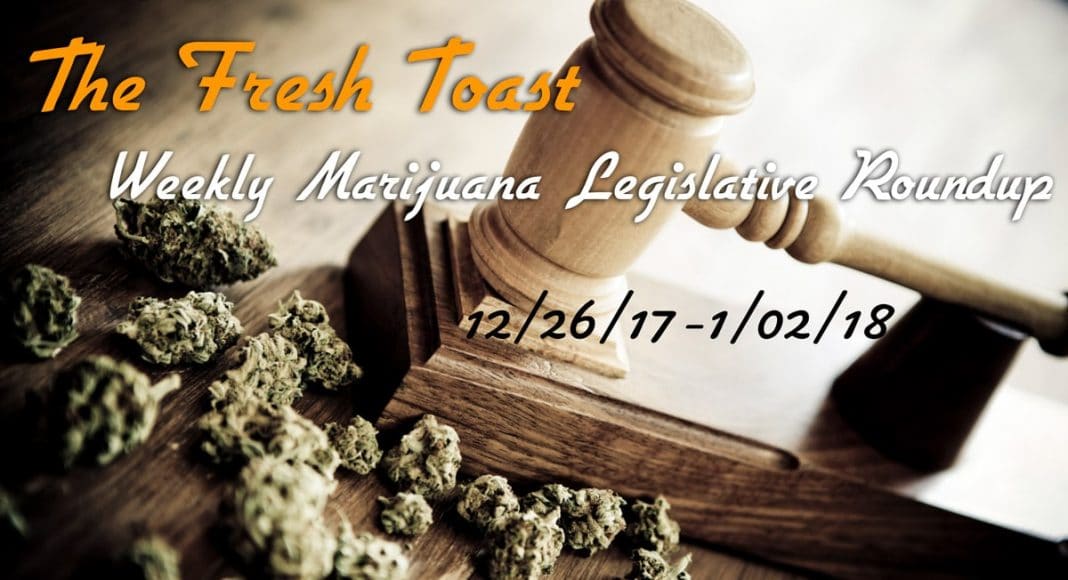The last week of 2017 ended with federal protection of medical marijuana alive (barely). Massachusetts’s cannabis commission OK’d draft regulations for the recreational market. And in California, Los Angeles finally announced it would accept business applications as legalization becomes legal in the state. Read all about these developments and more in The Fresh Toast’s Marijuana Legislative Roundup for Jan. 2.
National:
On December 21, Congress once again extended federal protections on medical marijuana businesses into the new year. The legislation, known as a continuing resolution (CR), leaves all provisions of the last budget in place while extending government funding until a new budget can be passed. That includes a measure known as the Rohrabacher-Blumenauer (or Rohrabacher-Farr) Amendment, which prohibits the use of federal funds to impede states from “implementing their own state laws that authorize the use, distribution, possession, or cultivation of medical marijuana.” The amendment has been included in every federal spending bill since its first passage in 2014, and was extended several times in 2017 despite a letter by Attorney General Jeff Sessions urging lawmakers to scrap the measure. This continuing resolution will keep the amendment in effect until January 19, 2018, when Congress must either pass another CR or an entirely new spending bill.
Massachusetts:
On December 21, the Massachusetts Cannabis Control Commission approved a set of draft regulations to implement the recreational marijuana legalization law first approved by voters and then substantially modified by the state legislature. The rules provide for social cannabis consumption under two different licenses. The first, called a “primary use” license, would be for businesses that derive most of their income from marijuana sales, such as cannabis lounges. The second type, called a “mixed-use” license, would allow marijuana to be consumed at coffee shops, yoga studios, and other businesses that derive most of their income from sources other than cannabis sales.
-
Related Story: What Just Changed About Massachusetts’ Marijuana Bill?
The regulations would also allow up to $3,000 worth of marijuana products to be delivered under a strict set of rules, as well as the creation of cannabis cooperatives to produce marijuana products that could then be sold to retailers, but not directly to consumers. The draft rules will be open to public comment until March, when they will be finalized and implemented before a July 1 deadline for the start of recreational sales.
California:
On December 22, city officials in Los Angeles announced that they would not begin accepting applications from recreational cannabis businesses to operate in the city until Wednesday, January 3. That means it could be several weeks before recreational cannabis will be sold in the state’s largest marijuana market following the January 1 start of recreational sales in the state. California law requires that businesses obtain local permits before they can apply for state licenses to grow, sell, or distribute cannabis products.
-
Related Story: Happy New Year California, Now Go Buy Some Cannabis!
Local governments have been scrambling to put the necessary regulations in place to begin issuing permits, and the state only began issuing licenses in mid-December. As a result, it appears that very few businesses will be opening for recreational sales on New Year’s Day.


